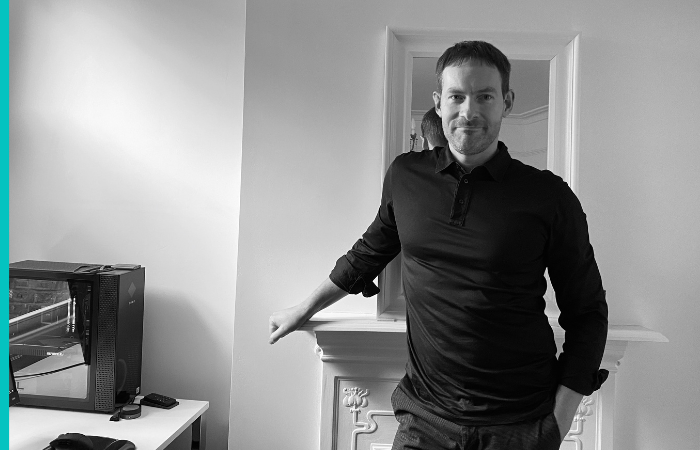Meet the founder of Mercury Dasha
Rita Sheth is the designer and founder of MERCURY DASHA, a future-inspired, luxury streetwear brand that offers physical and digital fashion. Rita is also a lawyer and has worked in the industry for over a decade prior to starting her business. Recently, Rita has also taken her life, career and business experience towards developing a personal growth and coaching platform, The Many Sides, through which she helps women transform their lives and re-define their identity.
Tell us about your experience prior to launching your business?
I studied PPE at Oxford and then I went on to work in PR/CSR for a time before embarking on my legal career in which I went on to specialise in dispute resolution working in many different industries and sectors and serving both large and small clients. I started my entrepreneurship journey in 2014 and this has resulted in where I am now where I run multiple businesses, including MERCURY DASHA.
If you could be in a room with 4 entrepreneurs, who would they be and why?
Sophia Amoroso because she tapped into a specific fashion culture from the ground-up using edge, grit and hustle. She was my first woman role model in fashion.
Victoria Beckham because she appears to be relatively well-grounded and have a balance between family, parenting, her relationship and career - which is not an easy thing.
Jay-Z for an account of a rags to riches story and his take on the American Dream.
Elon Musk because he is so futurist in his thinking and I am fascinated by his vision of where we are headed as a society.
How does technological advancement speak to the strategic direction of your business?
I am really interested in the movement into digital fashion not only for its massive impact in terms of sustainability, but also because it crystalises what I have always thought about fashion being an art form. The fact we are now able to play with fashion in multiple ways, apart from physically owing and consuming it, represents for me its natural evolution and allows for fashion designers to explore the fullest expressions of their creativity and also allows fashion consumers to take new risks and experiment.
When I started MERCURY DASHA, technology was an intrinsic part of the vision, in terms of both being a source of inspiration but also using it to explore what fashion actually is and what it will be in the future. That is the strategic direction I want to pursue – to keep creating digitally and exploring how technology advances fashion culture in non-traditional ways in every sense - from creation, manufacture and presentation, as well as taking part in collaborations and partnerships that align with that vision.
Describe your business in three words.
Urban, Future, Design
What’s the most important question entrepreneurs should be asking themselves?
How can I get feedback as quickly as possible?
What are your top tips for entrepreneurs wanting to get their business out there?
Be lean and not perfectionist in designing an MVP
Start networking as soon as you can to establish the key decision makers
Design the necessary conversations to test and refine your core offer
What are your thoughts on ‘no sleep’ culture as an entrepreneur?
It is advice which I think is now recognised as outdated. You need sleep. Sometimes you can’t do anything or shouldn’t do anything in business because things need time to play out and you need to generate feedback before moving forward in a logical way and, ironically, this is sometimes harder than constantly hustling. Waiting and being patient is one of the lessons I have learned the hard way. Also, you need sleep for recharging creativity and if often when you get your best ideas.
What would be your top three tips to fellow entrepreneurs to look after their mental health?
Being an entrepreneur really made me aware of my mental health in a way I probably wouldn’t have paid as much attention to otherwise as it can easily lead to burn-out and life can spiral out of control.
My top tips are quite practical: go for a long walk, a swim or cycle ride or just get away from your desk and screen for a period each day, monitor your water intake so you are energised – water is so important, and spend time each day journaling. This has helped me massively.
How do you prepare for an AI centric world?
It can be expensive for smaller start-up fashion brands to access some of the benefits of AI technology, but we can definitely start to explore it through collaborations and partnerships. So, for example we are part of a digital fashion marketplace, DRESSX, that allows customers to try on garments in VR. We can’t yet implement a virtual mirror ourselves or sell digital fashion try-ons on our own website, so this is where partnerships can serve as an accessible starting point to using AI, and related tech, more progressively in future.
How do you think NFTs will impact the retail industry?
It is exciting but still in its formative stages so we will see, however I love the creative possibilities it offers.
At MERCURY DASHA we offer digital fashion products, and we also offer NFT fashion art so that customers can become part of the brand journey, learn and explore our ‘backstage inspiration’ and start to understand fashion in non-physical ways.
As someone who has always wanted fashion to be more ‘collectible’ and someone that sees fashion as an art form, I am an advocate for fashion NFTs. Fans of a brand can support a brand by buying an NFT rather than a physical item because they want to be a part of the culture and ethos of the brand and follow it as it grows. So, I think NFTs are a positive development for the retail industry and allow for greater engagement, creativity and the possibility of an additional revenue stream.








